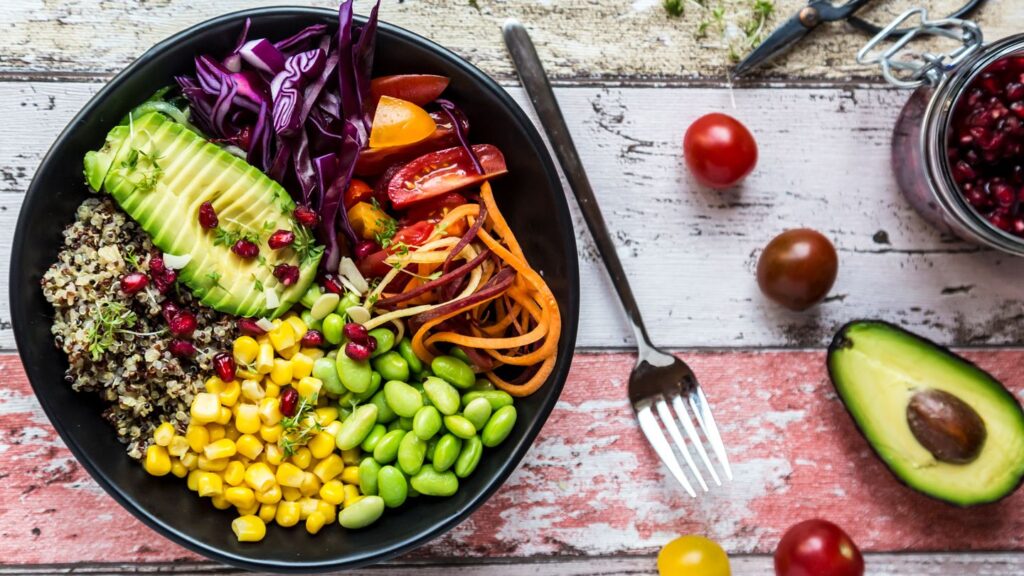Managing high cholesterol while aiming for weight loss can feel overwhelming, but choosing the best diets for high cholesterol and weight loss makes a major difference. Adopting the right meal plan not only brings your cholesterol levels under control but also helps you shed unwanted pounds, boosting your heart health and overall wellbeing.
This in-depth guide explains what makes a diet effective for improving cholesterol and losing weight, reviews top evidence-based plans, and provides actionable strategies—perfect for anyone seeking long-term health without sacrificing enjoyment.
Why Diet Matters for High Cholesterol & Weight Management
Cholesterol is necessary for important bodily functions, yet too much—especially LDL (“bad”) cholesterol—can clog arteries and raise your risk for heart disease and stroke. Excess weight amplifies these risks by contributing to inflammation, insulin resistance, and higher cholesterol production in the liver.
Dietary changes are among the most powerful tools for tackling both issues. The best diets for high cholesterol and weight loss focus on:
- Reducing saturated and trans fats
- Increasing soluble fiber and plant sterols/stanols
- Emphasizing fruits, vegetables, legumes, and whole grains
- Promoting healthy fats (like those found in nuts and fish)
- Calorie control and balanced portion sizes
What Foods Should You Eat for High Cholesterol and Weight Loss?
By centering meals on the following foods, you create a foundation for any of the recommended diets:
- Whole Grains & Fiber: Oats, barley, beans, lentils, quinoa, whole-wheat products
- Fruits & Vegetables: Especially those high in pectin, such as apples, berries, citrus, eggplant, okra
- Lean Protein: Fish (especially fatty fish), skinless poultry, legumes, tofu, beans
- Healthy Fats: Nuts (walnuts, almonds), seeds (flaxseed, chia), avocados, extra-virgin olive oil, liquid plant oils
- Low-Fat Dairy: Skim milk, low-fat yogurt, reduced-fat cheese and spreads
Foods to limit or avoid:
- Red and processed meats
- Full-fat dairy
- Baked goods with hydrogenated oils and trans-fat
- Tropical oils (coconut, palm)
- Fried and fast foods
- Sweets, sugary drinks, and excess alcohol
The Best Diets for High Cholesterol and Weight Loss
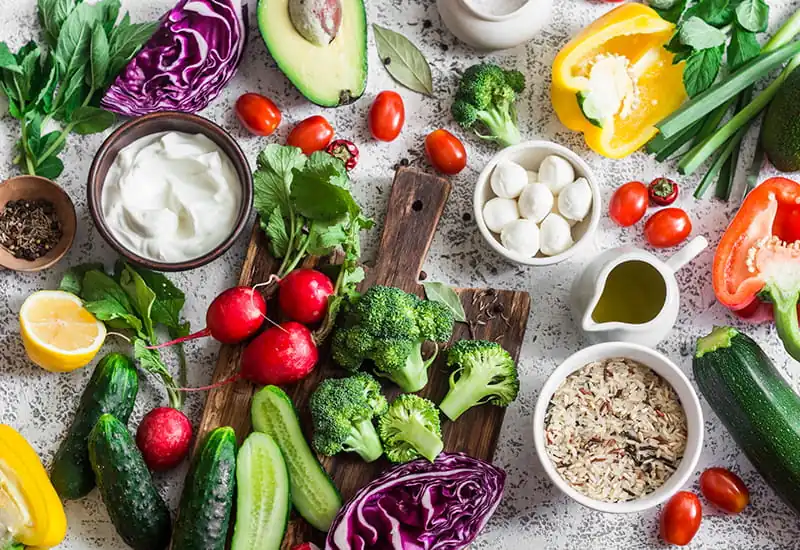
Mediterranean Diet
Why It Works
The Mediterranean diet is widely considered one of the best diets for high cholesterol and weight loss. It emphasizes whole foods, heart-healthy fats, and lean proteins, making it easy to follow and satisfying.
Core principles:
- Abundant veggies, fruits, beans, legumes, and whole grains
- Lean protein mainly from fish and seafood
- Olive oil as primary fat source
- Limited red meat and sweets
- Optionally, moderate red wine with meals
Practical Example:
A day might include oatmeal with berries for breakfast, a mixed bean salad for lunch, grilled salmon with roasted veggies and quinoa for dinner, and fresh fruit for dessert.
DASH Diet (Dietary Approaches to Stop Hypertension)
Why It Works
Developed to combat high blood pressure, the DASH diet is also highly effective for lowering cholesterol and encouraging weight loss.
Core principles:
- High intake of fruits, veggies, and low-fat dairy
- Emphasis on whole grains, nuts, and legumes
- Restriction of saturated fat, cholesterol, and sodium
- Lean proteins like fish and poultry
Practical Example:
Start the day with a fruit smoothie and whole-grain toast, enjoy a veggie-packed turkey wrap for lunch, and finish with baked cod, steamed broccoli, and brown rice for dinner.
TLC Diet (Therapeutic Lifestyle Changes)
Why It Works
The TLC diet was created specifically to manage cholesterol. It’s structured and research-backed, combining food guidelines with lifestyle change.
Core principles:
- Less than 7% of daily calories from saturated fat
- Limit cholesterol intake to under 200mg/day
- 2 grams per day of plant stanols or sterols
- 10–25g per day of soluble fiber
- Focus on fish, lean meats, legumes, and whole grains
- Moderate physical activity most days
Practical Example:
Oatmeal with sliced banana (soluble fiber), lentil soup for lunch, stir-fried tofu and veggies for dinner, with snacks of nuts or fruit.
Dean Ornish Diet
Why It Works
The Dean Ornish diet is a plant-based, low-fat approach proven to dramatically lower cholesterol. It’s stricter than most, excluding all meat and emphasizing whole, unprocessed foods.
- Mostly fruits, vegetables, grains, and legumes
- Little to no animal fat—allows egg whites and nonfat dairy
- Minimal added oils
Often combined with exercise, stress management, and social support, this pattern produces weight loss and cholesterol reductions but may require more planning.
Flexitarian Diet
Why It Works
The flexitarian approach promotes a mostly vegetarian lifestyle, occasionally allowing animal products. It’s flexible, less restrictive, but still yields improvements in cholesterol and weight.
- Mainly plant-based meals with room for fish or poultry
- Whole grains and legumes as eating staples
- Limits processed and sugary foods
Tip: Prepare two or three meatless meals per week, like bean chili or stir-fried tempeh, and use fish or skinless chicken in others.
Vegan Diet
Why It Works
Removing all animal products, the vegan diet slashes cholesterol intake and emphasizes high-fiber fruits, vegetables, beans, and whole grains—excellent for both cholesterol control and healthy weight loss.
Pitfalls: Be mindful of protein sources and ensure you get vitamin B12, omega-3s, and iron.
Actionable Tips to Succeed on the Best Diets for High Cholesterol and Weight Loss
1. Plan a Sample Day of Eating
| Meal | Example Foods |
|---|---|
| Breakfast | Steel cut oats, berries, walnuts, skim milk |
| Snack | Small apple, unsalted almonds |
| Lunch | Lentil and vegetable soup, whole grain toast |
| Snack | Carrot sticks and hummus |
| Dinner | Grilled salmon, quinoa pilaf, sautéed spinach |
| Dessert | Fresh fruit, such as orange slices |
2. Smart Grocery Shopping
- Shop the perimeter of the store for produce, lean proteins, and dairy
- Check nutrition labels for saturated fat, added sugar, sodium, and fiber
- Choose products with plant sterols added, like fortified spreads or bars
3. Meal Prep for Convenience
- Batch-cook beans and whole grains for quick meals
- Pre-cut veggies for easy snacks
- Portion out nuts/seeds to enjoy as hunger-curbing snacks
4. Dining Out Healthfully
- Select baked, grilled, or broiled meals over fried ones
- Request dressings and sauces on the side
- Opt for salads, grain bowls, or fish-based dishes
Exercise and Lifestyle Tweaks for Lower Cholesterol & Lasting Weight Loss
Pairing the best diets for high cholesterol and weight loss with healthy daily habits deepens your progress:
- Engage in at least 150 minutes of moderate physical activity weekly (walking, swimming, cycling)
- Incorporate resistance training twice weekly
- Avoid smoking and limit alcohol
- Practice stress-management techniques—yoga, meditation, or deep breathing
Foods that Lower Cholesterol: Top Picks
| Food | How It Helps |
|---|---|
| Oats & Barley | Rich in soluble fiber, lowers LDL |
| Beans & Legumes | Soluble fiber and protein, supports weight loss |
| Fatty Fish (Salmon, Sardines) | Omega-3s reduce triglycerides |
| Nuts & Seeds | Healthy fats, plant sterols |
| Apples, Berries, Oranges | Pectin helps block cholesterol |
| Soy & Soy Products | Lowers cholesterol, provides plant protein |
| Olive, Canola, Sunflower Oils | Healthy replacement for saturated fat |
Diets to Approach With Caution
While some low-carb diets (like keto or Atkins) may promote short-term weight loss, they often recommend high-fat animal products that can raise cholesterol levels—posing risks, especially for individuals already at risk for cardiovascular disease. Always consult a healthcare professional before drastically changing your diet pattern.
How Long Does It Take to See Results?
- Initial improvements in cholesterol may show within 4–6 weeks (especially with plant-based, high-fiber diets)
- Weight loss tends to accelerate as you lose 5–10% of your starting weight
- Consistency and combining diet with exercise yield the strongest long-term effects
Your Next Steps: Sustainable Changes for Life
- Start with one small change—swap out processed snacks for fruit, use olive oil instead of butter, or add one extra serving of veggies per meal
- Track progress with a food journal or app
- Seek support from a dietitian or heart health groups
Understanding the Role of Fiber in Reducing Cholesterol and Supporting Weight Loss
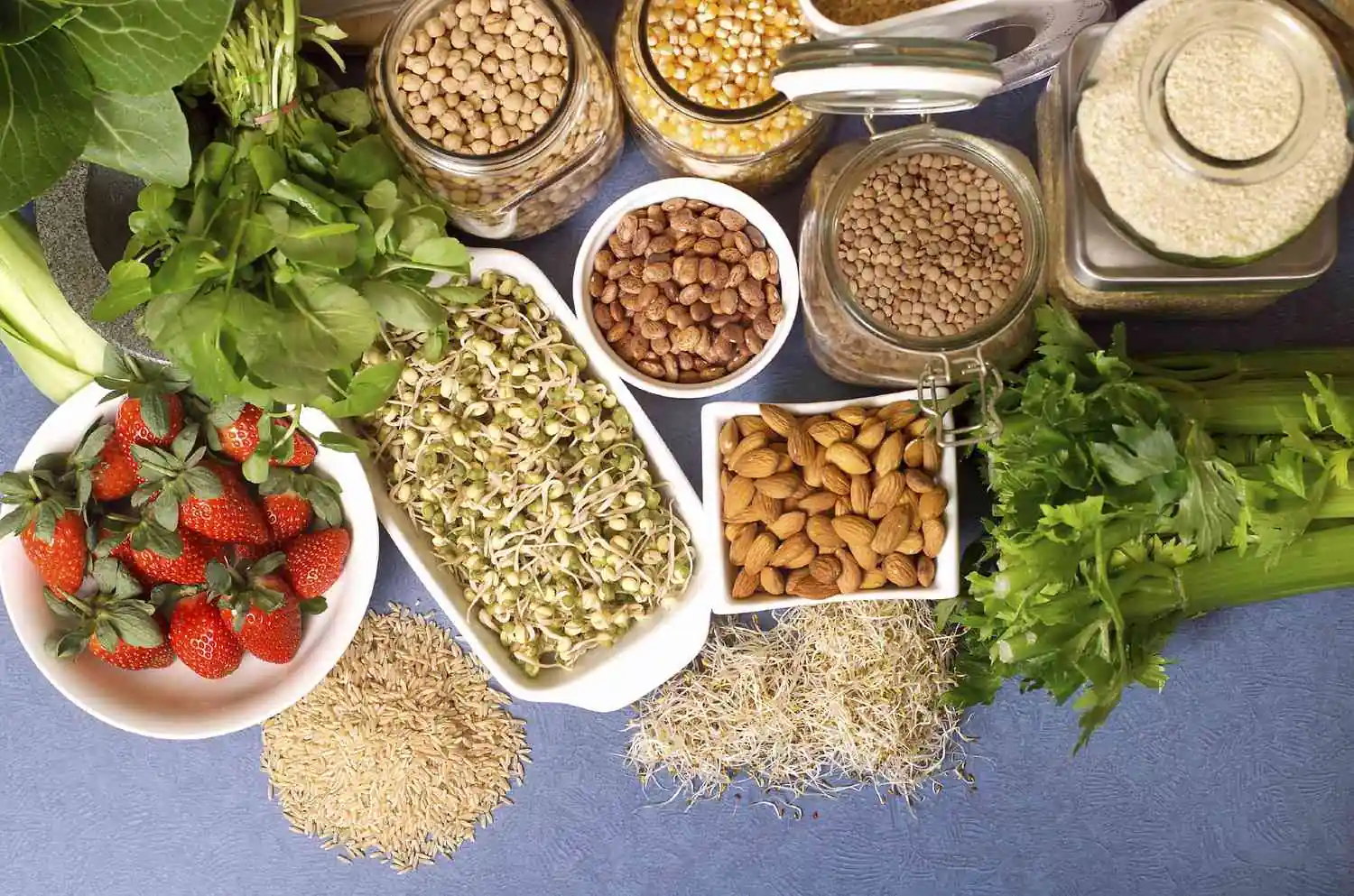
One of the primary nutritional components highlighted in the best diets for high cholesterol and weight loss is dietary fiber. Fiber, especially soluble fiber, plays a critical role in managing cholesterol levels and supporting weight management.
What Is Soluble Fiber and Why Does It Matter?
Soluble fiber dissolves in water, forming a gel-like substance in your digestive system. This gel binds with cholesterol-rich bile acids, helping to remove them from your body during digestion, which in turn lowers LDL (“bad”) cholesterol levels.
Common sources of soluble fiber include:
- Oats and oat bran
- Barley
- Beans, lentils, and chickpeas
- Apples, oranges, and pears
- Carrots and sweet potatoes
- Psyllium husk
How Fiber Affects Weight Loss
Fiber contributes to weight loss and maintenance by:
- Promoting feelings of fullness, reducing overall calorie intake
- Slowing digestion, which helps regulate blood sugar and energy levels
- Supporting healthy gut bacteria that might influence metabolism
Practical Tips for Increasing Fiber Intake
- Start your day with a high-fiber cereal or oatmeal topped with fresh fruit
- Incorporate beans or lentils into soups, salads, or main dishes at least 3 times a week
- Snack on raw veggies, fruits, or nuts instead of processed snacks
- Substitute white rice and pasta with whole-grain or legume-based alternatives
Increasing fiber gradually and drinking plenty of water can help minimize digestive discomfort.
The Importance of Healthy Fats in Cholesterol Management and Weight Control
Contrary to past beliefs that all fats were bad, many of the best diets for high cholesterol and weight loss emphasize the importance of healthy fat consumption.
Types of Healthy Fats
- Monounsaturated fats: Found in olive oil, avocados, and most nuts; known to lower LDL cholesterol while maintaining or increasing HDL (“good”) cholesterol
- Polyunsaturated fats: Including omega-3 fatty acids found in fatty fish (like salmon and mackerel), walnuts, and flaxseeds; these fats reduce inflammation and triglycerides
- Plant sterols and stanols: Naturally occurring substance found in small amounts in fruits, vegetables, nuts, and seeds that help lower cholesterol by blocking absorption
Benefits for Weight Loss
Healthy fats can promote satiety and reduce cravings, improving adherence to calorie-controlled diets. They also support brain function and hormone production, which are critical during weight loss.
Practical Ways to Add Healthy Fats to Your Diet
- Use extra-virgin olive oil for salad dressings and cooking
- Snack on a small handful of walnuts or almonds daily
- Sprinkle ground flaxseed or chia seeds over yogurt, oatmeal, or smoothies
- Incorporate fatty fish into meals at least twice weekly
Remember, portion control is key, as fats are calorie-dense.
How Antioxidants and Phytochemicals Boost Heart Health and Support Weight Loss
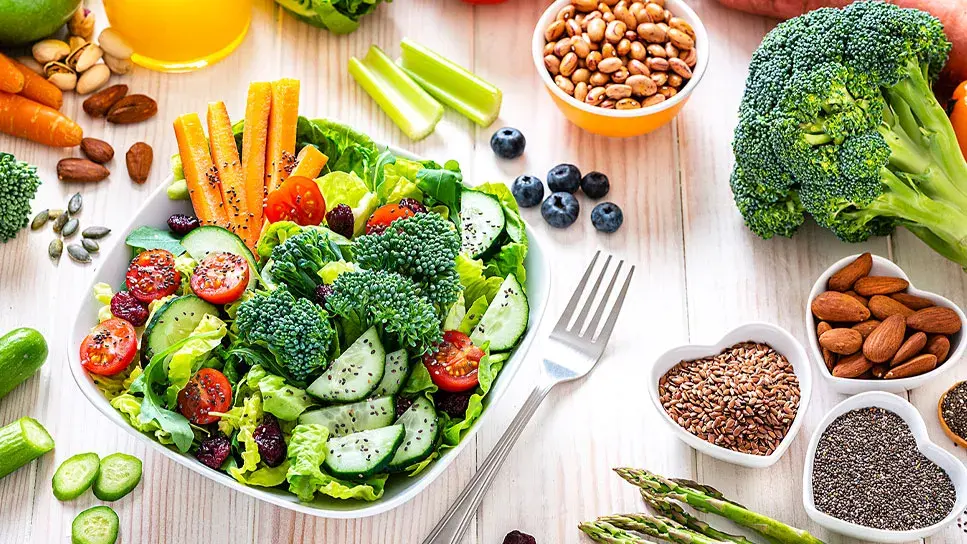
The best diets for high cholesterol and weight loss also feature foods rich in antioxidants and phytochemicals—natural compounds found in plant foods that provide additional heart-protective benefits.
What Are Antioxidants and Phytochemicals?
They are compounds like flavonoids, carotenoids, and polyphenols that protect your cells from oxidative stress and inflammation, both key factors in cardiovascular disease.
Heart-Healthy Foods Rich in These Compounds
- Berries (blueberries, strawberries, raspberries)
- Dark leafy greens like spinach and kale
- Tomatoes (rich in lycopene)
- Red, yellow, and orange peppers
- Green tea
How These Foods Support Weight Loss
Besides supporting heart health, antioxidant-rich foods tend to be nutrient-dense and low in calories, an ideal combination for weight management.
The Role of Portion Control and Mindful Eating in Diet Success
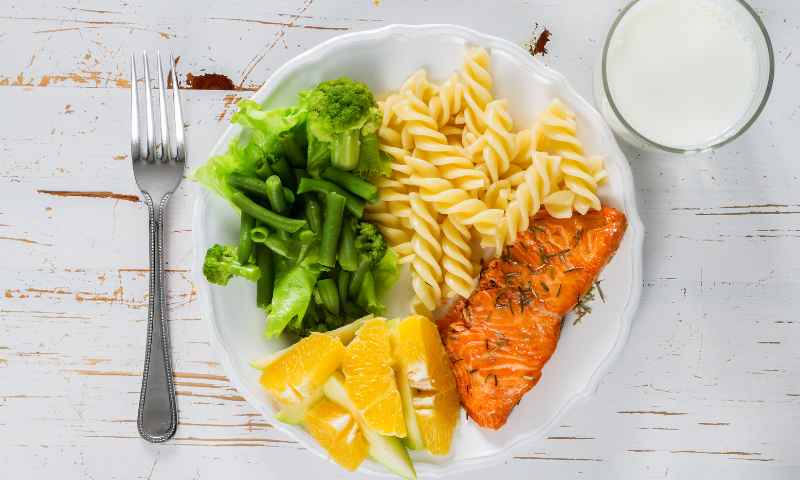
While food quality is crucial, how much you eat can be equally important when aiming for weight loss and cholesterol control.
Benefits of Portion Control
- Prevents overeating without eliminating favorite foods
- Helps maintain a calorie deficit necessary for weight loss
- Assists in balancing macronutrient intake
Mindful Eating Tips
- Eat slowly and chew thoroughly to enhance digestion and fullness signals
- Avoid distractions like screens during meals
- Focus on hunger and fullness cues—eat when hungry, stop when satisfied
- Use smaller plates and bowls to naturally reduce portions
Practicing these behaviors fosters a healthier relationship with food, reduces emotional eating, and supports sustained progress.
How to Customize the Best Diets for High Cholesterol and Weight Loss to Your Lifestyle
Every person has unique preferences, schedules, and cultural food traditions. Adapting the best diets for high cholesterol and weight loss to fit your life increases the likelihood you’ll maintain these habits long term.
Tips for Personalization
- Swap out recommended ingredients with culturally relevant equivalents that meet the same nutritional criteria
- Find simple recipes that fit your cooking skill and time availability
- Prioritize nutrient-dense convenience options like pre-washed greens, canned beans, or frozen vegetables
- Adjust meal timing and frequency to your hunger patterns and daily routine
Consulting a registered dietitian can also guide personalized strategies that optimize results while enhancing enjoyment.
Monitoring Progress: Tools and Techniques
Tracking your progress can motivate you and help identify patterns needing adjustment.
Effective Methods Include:
- Logging food intake and physical activity in apps or journals
- Regularly measuring weight, waist circumference, and energy levels
- Periodic cholesterol testing with your healthcare provider
- Reflecting on mood, sleep, and hunger signals
This feedback loop supports mindful adjustments and reinforces positive behaviors.
Choosing the Best Diets for High Cholesterol and Weight Loss
- Focus on diets high in whole, unprocessed plant foods, lean protein, and healthy fats
- The Mediterranean, DASH, TLC, Dean Ornish, Flexitarian, and vegan diets are top options
- A heart-healthy eating plan lowers cholesterol, facilitates weight loss, and improves overall wellbeing when paired with exercise and healthy habits
Choosing the best diets for high cholesterol and weight loss isn’t about deprivation—it’s about enjoying a wide variety of nourishing, satisfying foods that protect your heart and support your goals. Small, sustainable changes truly add up to big rewards in the long run.
